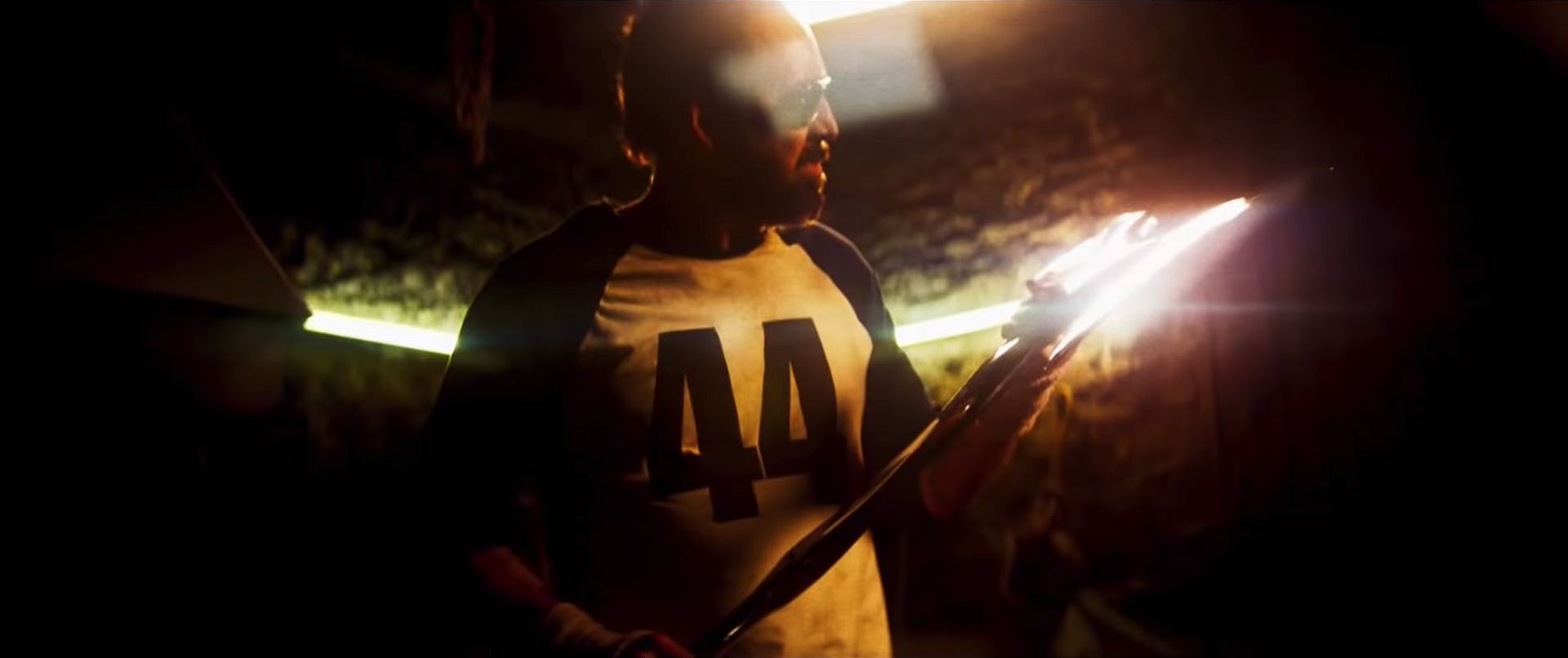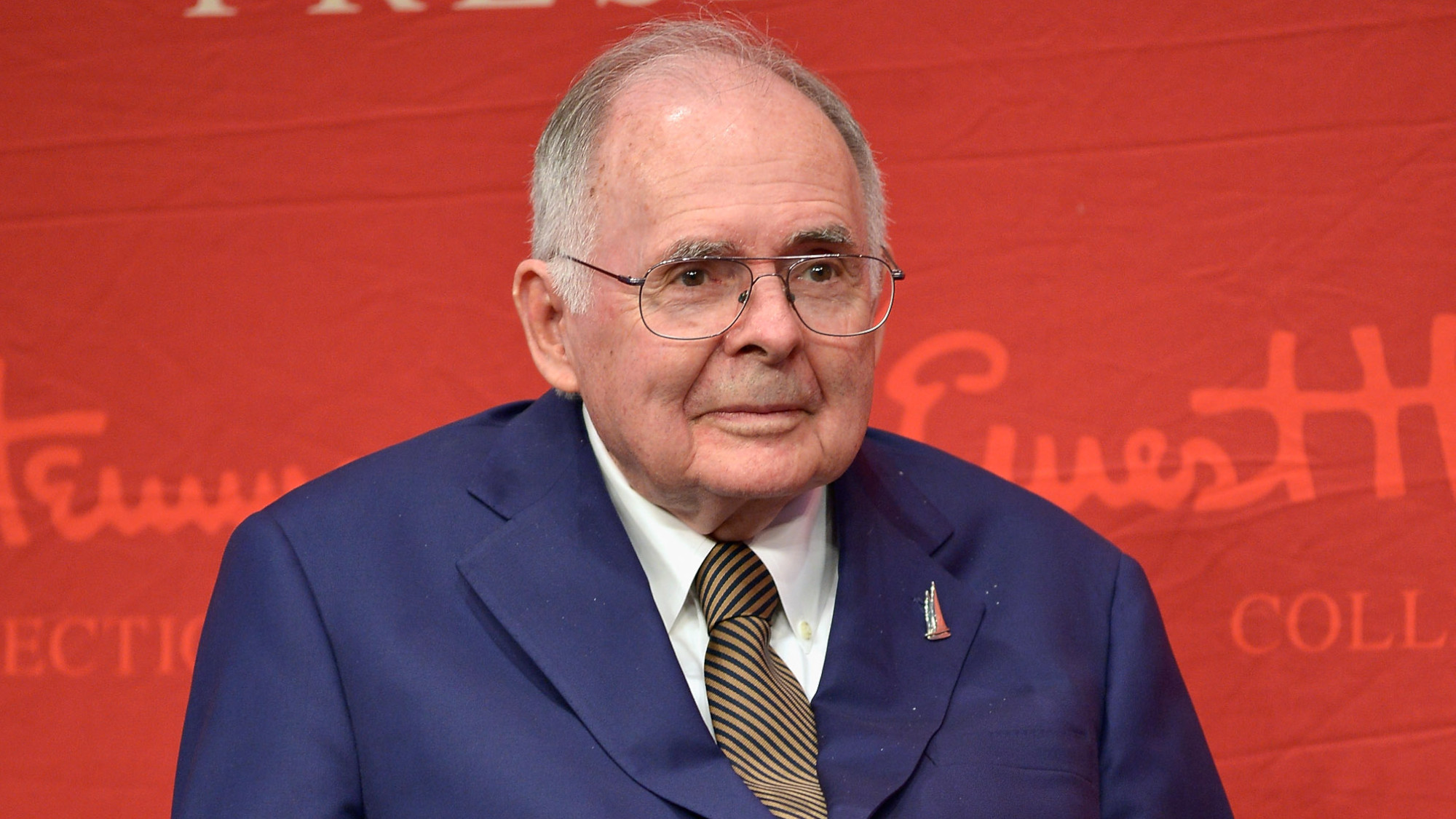Is Nicolas Cage ... good again?
In Mandy, the Oscar-winning actor is no joke


There are two kinds of people in the world: Those who think Nicolas Cage is more meme than man, and those who will defend him as one of the greatest living American actors.
In recent years, Cage has seemed hellbent on proving the first group correct — let's face it, The Wicker Man did not help things. But with his return this Friday in Panos Cosmatos' new film Mandy, Cage delivers a performance that doesn't just hold a candle to his best roles — it supersedes them.
Since he first appeared in Fast Times at Ridgemont High in 1982, Cage (née Coppola) has had a dizzyingly prolific, hit-or-miss career, ranging from critically acclaimed films like Raising Arizona, Wild at Heart, and Leaving Las Vegas to blockbusters like National Treasure. Then there are dozens of movies like USS Indianapolis: Men of Courage, that I am convinced no one has actually seen. As a consequence of making at least a movie a year for basically three decades and seemingly being opposed on principle to franchises and sequels (National Treasure: Book of Secrets and Ghost Rider: Spirit of Vengeance being the only exceptions), Cage has had a lot of bombs. A lot. The actor has eight single-digit movies on Rotten Tomatoes, including a 1993 film called Deadfall that left the Montreal Film Journal's critic simply gasping: "Oh man! This is so bad!"
The Week
Escape your echo chamber. Get the facts behind the news, plus analysis from multiple perspectives.

Sign up for The Week's Free Newsletters
From our morning news briefing to a weekly Good News Newsletter, get the best of The Week delivered directly to your inbox.
From our morning news briefing to a weekly Good News Newsletter, get the best of The Week delivered directly to your inbox.
At a certain point — somewhere around something called Bangkok Dangerous — his films begin to seem more like the output of a Nic Cage Movie Generator than anything anyone actually paid money to make, much less watch. Cage's status as a joke extends to him having his very own page on Know Your Meme. The entry for "Nicolas Cage" on Urban Dictionary muses that he is "one of the few actors in Hollywood to get incrementally worse with each role." The Daily Beast dubbed him the "direct-to-video king." Wrote Gawker circa Season of the Witch, "I can never remember if I am supposed to like Nicolas Cage sincerely and enjoy his movies ironically, or like him ironically and not enjoy his movies at all?"
Which brings us to the weird, weird present.
Cage has seven (SEVEN) movies coming out this year, a record even for him. And while you might rightly expect him to be up to the same old was-that-movie-even-in-theaters-because-I've-never-heard-of-it fare with a slate that includes Looking Glass and 211 (made by a director whose real name is apparently "York Shackleton"), Mandy is ... so very special.
Set in a fictional mountain range in the Pacific Northwest in the early 1980s, Mandy opens with a sea of trees. Cage plays Red, a lumberjack who lives in these forests with his wife, Mandy (Andrea Riseborough). Although it's remote, they're not alone; they soon have a violent run in with a Manson-like cult leader, Jeremiah Sand (Linus Roache), who believes his god has granted him "permission to go out into this world and take what is so very much mine." That involves summoning a gang of chrome monsters — picture a combination of Ringwraiths and the War Boys of Mad Max: Fury Road — to bring him Mandy.
A free daily email with the biggest news stories of the day – and the best features from TheWeek.com
For the first half of the film, you almost don't notice Cage, which is only partly because he's hidden beneath a bushy Seattle-worthy beard. The main reason is that, for once, Cage stays in the background. A man of few words, Red conveys his deep love for Mandy through the way he watches her, with something soft and slightly afraid in his eyes. We see Mandy and Red's laser-like attention for each other even during Mandy's kidnapping, when their shared look — with no words exchanged — becomes their last communication before they are separated.
Red is wrenched into the foreground of the story after that; for long, painful minutes we watch Cage, bound and gagged, as he expresses Red's agony and anguish at the sight before him. It is so convincing that it is genuinely hard to watch, although the camera stays unflinchingly on his face. When Red finally manages to free himself, he sets on a warpath for revenge, intent on killing every last member of the cult that took his wife.
This might sound like a setup for a Cage Rampage, but there's an authenticity to his anguish here that harkens back, even transcends, some of his best performances.
Take a scene in Mandy that's reminiscent of Cage's turn as Ben Sanderson, the alcoholic at the center of Leaving Las Vegas, for which he won his only Academy Award. Right at the beginning of Leaving Las Vegas, Cage performatively drinks a bottle of vodka like it's Dasani. He is driving, but with his head tipped back and the bottle aloft, it looks more like he is playing the horn in the soundtrack than concentrating on the road. In Mandy, just before he begins his quest for revenge, Red also tips back an entire bottle of vodka. Like in Leaving Las Vegas, it is a scene of intense suffering, but while the former is like a dramatic flashing neon sign that says this man is very sick!, in Mandy there is no Cageian flare. Yes, he bellows like a wild animal. Yes, he cries. But he also moves without self-awareness. This isn't "Nic Cage being crazy in a movie," but an unfiltered outburst of pain from a usually silent character, which ebbs back into him when he set off on his revenge mission. Cage's restraint elsewhere makes his outburst nauseatingly convincing — even the camera seems uncertain how to react, moving closer to him, and then pulling away.
As the film twists into its revenge portion, Cage is wounded, splattered with his enemies' blood, and made wilder and wilder in his drive to kill Jeremiah Sand. But unlike other revenge films, which dip or dive into camp, Cage's Red is rooted in a vulnerable humanity; there is no cathartic ecstasy to his murder of the people who took Mandy from him.
Cage is a man who is acting even just in the way he holds his body — he has credited his mother, a dancer, for the acute attention he pays to his posture. For most of Mandy, Cage never speaks, although we never want for knowing what is going through his head thanks to the smallest movements of his body, the way he slumps his shoulders or moves the tiny muscles around his mouth. Without giving too much away, there is a final image in the film — of Cage grinning maniacally at a vision in the passenger side of his car, face entirely red with blood but for the crazed whites of his eyes and his bared teeth — that is burned into my retinas.
There will be those that never had their doubts that Cage would be incredible in Mandy. I'd not go as far as to argue that Cage is always great, even in his "serious" roles; in the independent film Joe, his performance is overwrought and burdened by signing onto a film with a bad script. Still, there is a camp that argues Cage is misunderstood, an experimental actor in on the joke of himself.
Be that as it may, in Mandy there is no joke. Anyone looking to ironically enjoy another bad Nic Cage movie will be left, breathless and amazed, waiting for a punchline that never comes.
Jeva Lange was the executive editor at TheWeek.com. She formerly served as The Week's deputy editor and culture critic. She is also a contributor to Screen Slate, and her writing has appeared in The New York Daily News, The Awl, Vice, and Gothamist, among other publications. Jeva lives in New York City. Follow her on Twitter.
-
 Fannie Flagg’s 6 favorite books that sparked her imagination
Fannie Flagg’s 6 favorite books that sparked her imaginationFeature The author recommends works by Johanna Spyri, John Steinbeck, and more
-
 Google: A monopoly past its prime?
Google: A monopoly past its prime?Feature Google’s antitrust case ends with a slap on the wrist as courts struggle to keep up with the tech industry’s rapid changes
-
 Patrick Hemingway: The Hemingway son who tended to his father’s legacy
Patrick Hemingway: The Hemingway son who tended to his father’s legacyFeature He was comfortable in the shadow of his famous father, Ernest Hemingway
-
 Walter Isaacson's 'Elon Musk' can 'scarcely contain its subject'
Walter Isaacson's 'Elon Musk' can 'scarcely contain its subject'The latest biography on the elusive tech mogul is causing a stir among critics
-
 Welcome to the new TheWeek.com!
Welcome to the new TheWeek.com!The Explainer Please allow us to reintroduce ourselves
-
 The Oscars finale was a heartless disaster
The Oscars finale was a heartless disasterThe Explainer A calculated attempt at emotional manipulation goes very wrong
-
 Most awkward awards show ever?
Most awkward awards show ever?The Explainer The best, worst, and most shocking moments from a chaotic Golden Globes
-
 The possible silver lining to the Warner Bros. deal
The possible silver lining to the Warner Bros. dealThe Explainer Could what's terrible for theaters be good for creators?
-
 Jeffrey Wright is the new 'narrator voice'
Jeffrey Wright is the new 'narrator voice'The Explainer Move over, Sam Elliott and Morgan Freeman
-
 This week's literary events are the biggest award shows of 2020
This week's literary events are the biggest award shows of 2020feature So long, Oscar. Hello, Booker.
-
 What She Dies Tomorrow can teach us about our unshakable obsession with mortality
What She Dies Tomorrow can teach us about our unshakable obsession with mortalityThe Explainer This film isn't about the pandemic. But it can help viewers confront their fears about death.

